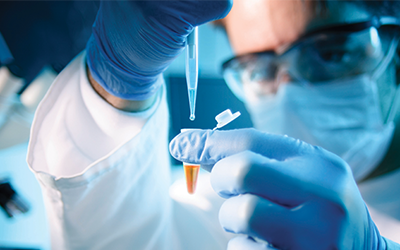We have explored the quality and significance of osmolality as a predictor for titer, glucose consumption, and growth-inhibitory by-products such as ammonium in mammalian cell culture. CHO cells were cultivated in 5-liter bioreactors in fed-batch mode expressing a recombinant antibody of the subclass IgG1. In addition to the conventional on-line and at-lien measurements, osmolality was measured at-line. The measurements of the different runs were used to establish correlations with osmolality and independent runs to test the predictive power of osmolality. Interestingly the osmolality is a good predictor for glucose, ammonium, and dissolved CO2 among others with a weaker power. The implementation of osmolality measurement and its application in bioprocessing will be discussed.
Presented by Professor Alois Jungbaur – BOKU
- Professor Alois Jungbauer received his PhD in Food Technology and Biotechnology from BOKU and serves there as a professor at the Department of Biotechnology. He teaches Protein Technology, Downstream Processing, and Bioprocess Engineering and is study director of the Ph.D. program Bioprocess Engineering. He also acts as area head of Bioprocessing Engineering and Deputy Director of Research in the Austrian Centre of Industrial Biotechnology. He is currently working in the field of bioprocess engineering of proteins, plasmids, and viruses. He has published 340 papers on recombinant protein production, bioseparation, and advanced materials for bioprocess engineering, 17 patents, and 12 book contributions, and recently a monograph entitled “Protein Chromatography, Process Development and Scale Up”. He is the executive editor of the Biotechnology Journal. He acts also as the vice president of research of the European Society of Biochemical Engineering Science.
